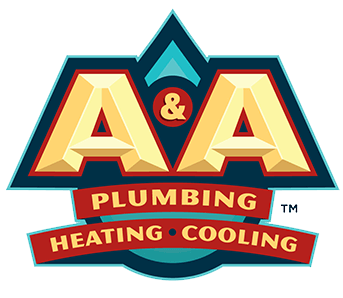Tankless Water Heaters: What You Should Know
The water heater in your home is one of your most important appliances. Water heaters are often taken for granted, but as soon as they have problems and stop working, they immediately demand attention. If you’re considering a new water heater for your home or yours recently stopped working, you should take time to consider your options.
Traditional tank-based water heaters are the most common option in the United States. These systems are reliable, robust, and can last for many years without requiring repair or replacement. However, they aren’t exactly efficient, and even newer models of tank-based water heaters may drive up energy costs unnecessarily.
One of the recent innovations that is changing minds across the country is the tankless water heater. Unlike traditional water heaters that heat up water and store it in a large tank, tankless water heaters heat up water on demand, only producing as much as is needed for immediate use.
Why Choose Tankless?
Tankless water heaters are slowly gaining market share because of the numerous advantages they offer. They can also lead to significant energy savings for some homeowners. Some of the benefits of tankless water heaters include:
- Space savings. While a traditional tank-based water heater system has a large tank that can take up an entire utility closet, a tankless water heater is about the size of a suitcase, attaching neatly to the wall or next to the wall. This type of system can potentially open a significant amount of extra storage space.
- Lower energy costs. Tankless water heaters streamline energy usage in your home. While a traditional system will run more often to fill up the tank after almost every hot water usage, a tankless system only uses as much energy as it needs to produce hot water on demand for exactly as long as needed and no longer.
- No more waiting for the tank to fill. With a traditional tank-based water heater, if the tank runs out, you have no more hot water until it refills. Depending on how old and how large the system is, this could potentially take several hours. Tankless systems completely avoid this and provide as much hot water as you need whenever you need it without any excessive energy expenditure.

These are just a few of the benefits of switching to a tankless water heater. While these are significant advantages, it’s important to know that tankless systems are not ideal for every type of home. If you’re considering a switch, you should know a few of the most common drawbacks.
Disadvantages of Tankless Water Heater Systems
Y ou might think that hot water on demand in a smaller unit would be ideal for your home, but the reality is that tankless water heater systems aren’t the best fit for every type of home.
ou might think that hot water on demand in a smaller unit would be ideal for your home, but the reality is that tankless water heater systems aren’t the best fit for every type of home.
They perform best in smaller efficiency homes. If you have a large floor plan with many different water-dependent appliances, a tankless system may not provide the level of performance you expect or you may need to install multiple units throughout your home.
Installation is also expensive for some homes, typically requiring pipe replacements and additional installation work. However, they have very low long-term repair and maintenance costs, and replaceable parts for tankless systems are quite affordable. Over time, the savings can easily pay for the slightly high initial cost of installation.
If you’re unsure whether switching to a tankless water heater would be a good idea for your home, contact A & A Plumbing 210-566-2665 today for more information about your options.
Resources:
https://www.consumerreports.org/water-heaters/tankless-water-heaters-vs-storage-tank-water-heaters/
https://www.energy.gov/energysaver/heat-and-cool/water-heating/tankless-or-demand-type-water-heaters


